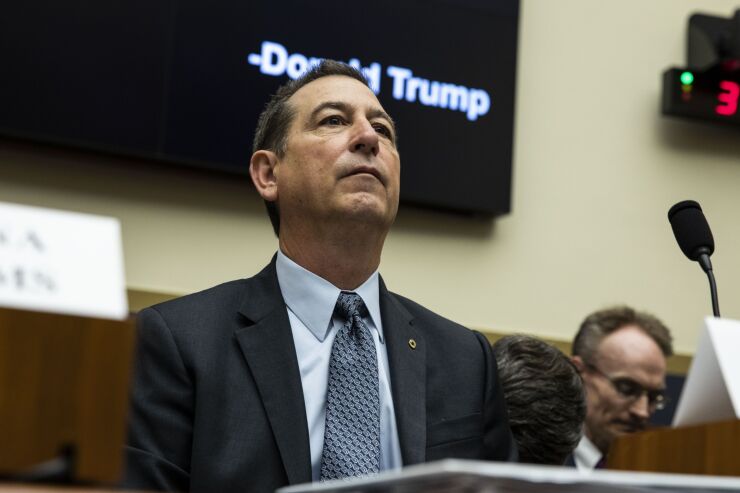WASHINGTON — Regulators are encouraging financial institutions to ramp up their small-dollar lending to distressed consumers in response to the coronavirus.
In a joint statement released Thursday afternoon, the Federal Reserve, Federal Deposit Insurance Corp., Office of the Comptroller of the Currency, Consumer Financial Protection Bureau and National Credit Union Administration signaled that examiners will not impede banks and credit unions' efforts to offer responsible small-dollar loans to help consumers experiencing a financial crunch.
“The agencies recognize the important role that responsibly offered small-dollar loans can play in helping customers meet their needs for credit due to temporary cash-flow imbalances, unexpected expenses, or income short-falls during periods of economic stress or disaster recoveries,” the agencies said.
The document is short on specific details but does spell out which kinds of products are attractive. Additional guidance with specific lending principles and recommendations will come later, according to officials.

"The current regulatory framework allows financial institutions to make responsible small-dollar loans," the joint statement said. "Such loans can be offered through a variety of loan structures that may include, for example, open-end lines of credit, closed-end installment loans, or appropriately structured single payment loans."
While the guidance is explicitly tied to addressing fallout from the COVID-19 outbreak, the statement echoes similar communications from Trump-appointed regulatory officials encouraging loan products that have previously drawn criticism from former officials and consumer advocates for their pricing stuctures.
Toronto-Dominion Bank plans to give most employees the option to return to the office this month and is aiming for workers to officially transition to their new working models by June.
The Biden administration once again extended the pause on student loan payments enacted to help borrowers during the COVID-19 pandemic, this time through the end of August.
Employees will still have some flexibility to work from home, but are strongly encouraged to collaborate with colleagues in person, according to people familiar with the matter.
Regulators did not limit the applicability of their statement to crisis periods.
“The agencies also recognize that responsible small-dollar loans can benefit financial institution customers in more normalized times when unexpected expenses occur or there are temporary income short-falls,” they wrote.
The OK from regulators could create new competition for credit unions, many of which have long been willing to write small-dollar signature loans other lenders shyed away from because they weren't particularly profitable. Some banks
Small-dollar lending has been an area of interest for both Comptroller of the Currency Joseph Otting and FDIC Chair Jelena McWilliams, who have argued that pushing banks out of the space has left payday lenders and other predatory players to fill the gap for consumers who seek out such lending.








